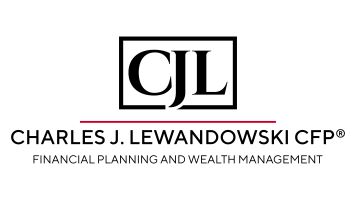Three Tips for Executives Joining the Great Resignation
Many executives are re-thinking their careers. Here are three factors you need to consider before you take the leap into a solo gig or retirement. – Do you know your family’s income requirements? – Have you developed a plan for tax efficient income? – Have you thought about health care?
Transcript:
(00:00):
The weather’s changing here in Florida. For the first time in a while, I was able to go through my morning run without feeling like I was in a chapter of Dante’s Inferno. The employment market’s changing as well. As we approach the final weeks of the year, many workers of all levels are assessing their commitment to their current employer. Tammy and George are to executive level clients that I have had the pleasure of helping. They’re responsible for the wellbeing of hundreds of individuals. Both have had successful careers and enjoy the lifestyle that they have achieved. But burnout is obvious when we meet.. I can see the exhaustion in their faces as they describe all they have done to keep their organizations running during the pandemic.. Within the last quarter, they have asked “Can I quit?”
(00:50):
Of course they could quit. The real question is if they do quit, can they experience a lifestyle that they will enjoy and maintain their dignity and independence?
Hi, I’m Chuck Lewandowski CERTIFIED FINANCIAL PLANNER professional ™. Today. I’ll discuss how with a little pre-work, you may be able to avoid pitfalls and enjoy your new lifestyle if you choose to join the great resignation.
I mentioned Tammy and George, they’re not alone. Media outlets have reported that workers have resigned at extremely high rates over the last year. According to the US Department of Labor, over 4.3 million people quit their jobs in August alone which is a new record. I’ve worked with several C-suite executives that have successfully transitioned from the paneled office to the retirement optional phase, where they retired outright or transitioned to a new career.
(01:49):
We jointly developed a financial plan and stress tested the outcomes by developing several what if scenarios. Each of these plans incorporated three important pillars.
#1 – A Clear Understanding of Personal Spending – Many executives have the luxury of not worrying about day-to-day spending. Once you leave the comfort of corporate life, you need to understand your household budget as well as you had known your department’s labor budget. My friend, Jim is 55. He was offered a big buyout for his company by a competitor. Once he looked at the details of his budget, he realized the “Big Buyout” wasn’t enough to sustain him and his wife into their 80’s. So, he negotiated a “Bigger Buyout”.
#2 – Knowing the Tax Impact of Your Income Sources – Severance plans, withdrawals from retirement plans, exercising stock options, and Social Security benefits all have different tax ramifications. A detailed liquidation plan should be developed to maximize your cash flow while minimizing Uncle Sam’s take. Joan, a former healthcare executive who started a consulting firm, was able to avoid Medicare surcharges by fully funding a Solo 401k retirement plan
(02:45):
#3 – A Plan for Health Care Coverage – This aspect of “moving on” may be a wildcard for you and any covered family members. COBRA, Obamacare, Medicare. Each have different financial impacts whether you continue to work or choose to retire. Everyone has different health care requirements. A plan needs to incorporate the appropriate coverage specifically for you and your family.
These three factors are just some of the variables that need to be addressed if you want to make a break from your career. A detailed financial plan fully explores these points as well as many others. If you are considering the next phase of your employment life, please give me a call and Let’s Make a Plan!
